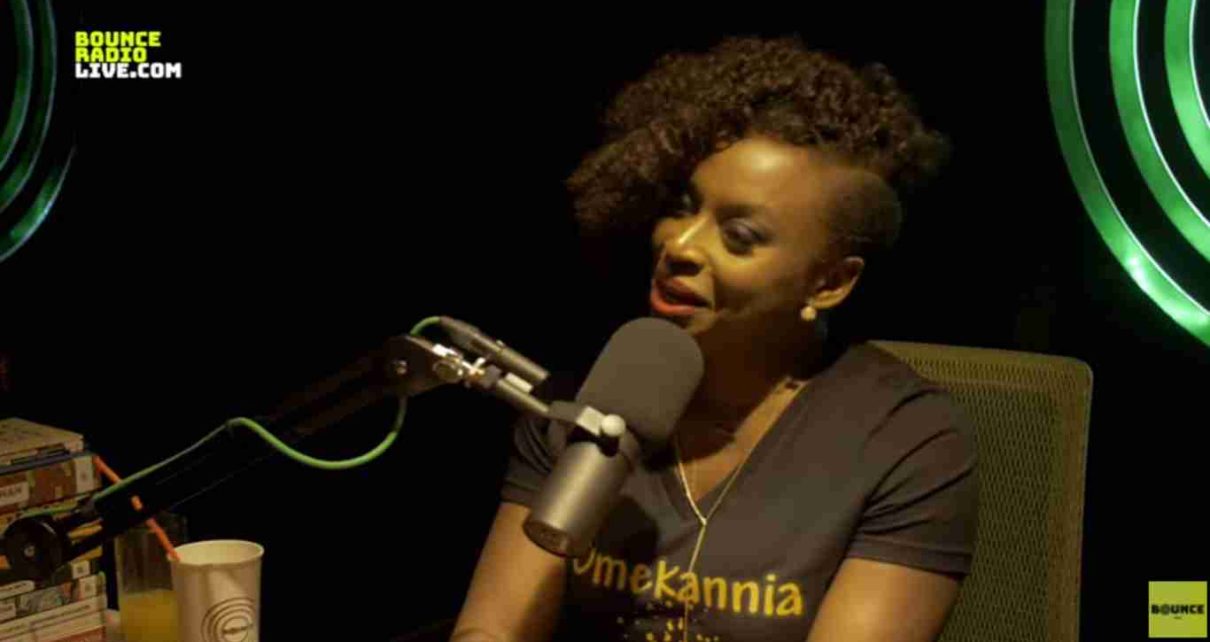Chimamanda Adichie Explains Why Igbo People Can’t Unite to Get Biafra

Chimamanda Ngozi Adichie, the award-winning author, has explained why the Igbo people can’t unite towards selecting a Nigerian president, and also expressed her reservations towards an independent state of Biafra.
The writer shared her thoughts when she joined television personality, Ebuka Obi-Uchendu at the Bounce Radio Live studio for an extensive conversation on the BlackBox Interview.
Over the course of their three-hour chat which premiered on New Year’s and January 3, 2021, respectively, the pair touched on Adichie’s literary work; devotion to the arts, Catholicism, feminism, Biafra, and Nigeria as a whole.
The 43-year-old writer who belongs to ethnic Igbo tribes of South-East Nigeria said she fears her people won’t be able to unite politically should it come to selecting an Igbo president for the country.
According to her, the Igbo people need to rethink how they strategize politically before talking about secession.
“There is no Biafra. There are new movements but, for me, it’s a question of being practical. Where would the border be? What is propelling these movements is a sense of marginalisation, which I think is completely valid,” she said.
“But this idea that the answer is independence is what I’m not convinced of. Nobody has made a logical case for me. Quite frankly, I’ve observed the terrible leadership that we have in the southeast (scoffs).
“Igbo people cannot unite if, for example, we say we want an Igbo president. And then we’re talking about Biafra. There is a lot of political work we need to do in the southeast.
Chimamanda who is a global icon of feminism also spoke of the movement in Nigeria with regards to the Igbo subculture, the novelist said that one of the things she battles with is what she termed the “misogynistic” tendencies of many cultural practices in the east.
“There are things I quarrel with, in Igbo culture. It’s misogynistic, as are many cultures. That’s the problem. The world is misogynistic. At my father’s funeral, they showed where the widow (my mother) would sit,” she explained.
“And they showed where the sons in the extended family (Umunna) would sit. That’s where those coming would go to present whatever they bring. It’s the sons’. And that was the end. My father had three daughters.
“There was no place for them. I raised the question and a man in my umunna said we would have to loiter around. There’s a problem with that.
Chimamanda is a wildly successful literary writer, she has bagged nothing less than 15 honourary doctorate degrees from respected universities around the world including Doctor of Letters, honoris causa, from Yale University; Doctor of Humane Letters, Honoris Causa from Georgetown University.
Her 2009 TED talk, The Danger of a Single Story, is currently one of the most viewed TED Talks of all time with over 7.7 million views.
